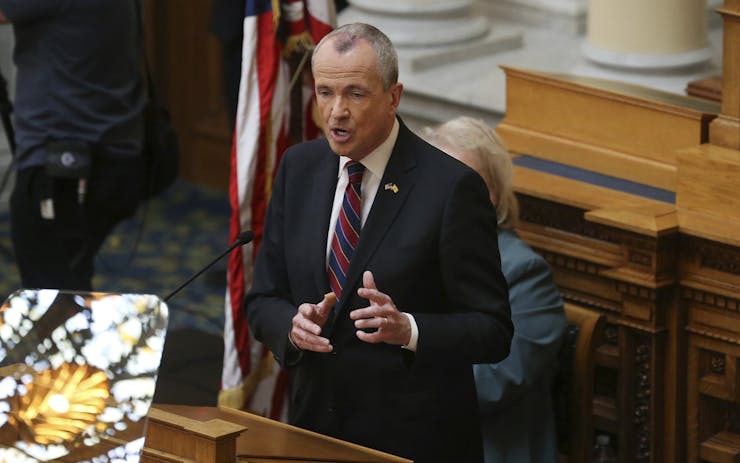Anyone with a New Jersey cannabis conviction could be in for good news if state lawmakers decide to enact criminal justice reforms suggested by Gov. Phil Murphy.
Murphy, a Democrat, late last week vetoed parts of Senate Bill 3205, which would have cleared a path to expungement of certain non-violent criminal cannabis charges. He argued the measure didn’t go far enough.
“I applaud the sponsors’ commitment to social justice, and their efforts to correct historic wrongs inflicted on our communities by a criminal justice system that has at times unfairly, and harshly punished individuals,” Murphy said in his statement. “I believe this bill can go further for the cause of justice.”
Murphy instead recommended the Senate consider an updated version that would expunge records automatically, removing barriers such as legal fees and filing complicated court documents.
His modified proposal would also automatically seal the records of individuals with low-level cannabis charges—which the state defines as possession of less than 50 grams, or distribution of less than an ounce—as a stopgap measure while they wait for expungement to take effect.
Civil rights advocates are cheering the move as a sensible response to America’s shifting views on cannabis.
“Governor Murphy’s conditional veto puts our state on the path to ensure that New Jerseyans burdened with criminal convictions—disproportionately people of color—will no longer need to navigate an onerous legal system to obtain the well-documented benefits of expungement,” Amol Sinha, executive director of the American Civil Liberties Union of New Jersey, said in a statement. “Instead, they will be able to expunge their records as soon as they become eligible.”
Championing Automatic Expungement
New Jersey’s current, limited expungement program is one of the priciest in the country: It can cost an individual more than $1,000 to get a charge expunged.
The current version of SB 3250, which Murphy vetoed after the Legislature passed it in June, would similarly require individuals that qualify for expungement to navigate the legal costs and procedures on their own. To qualify, individuals would need to have had a clean criminal record for 10 years.
In his veto message, Murphy urged lawmakers to instead invest in an automatic, computerized system. He cited as a model Pennsylvania’s Clean Slate Law, which was passed this year and is expected to seal the records of roughly 30 million criminal cases.
Shop highly rated dispensaries near you
Showing you dispensaries nearThe governor acknowledged that building an automatic system would not happen overnight. He hopes to establish a task force charged with studying the “technological, fiscal, resource and practical issues and challenges” of creating such a system.
“Our system is not set up to do this now, and undertaking this task will require buy-in and commitment from all three branches of government,” the governor wrote in his veto statement, calling for $15 million to be set aside for the development of a new expungement system.
Murphy also urged that low-level cannabis charges be sealed immediately while the automatic expungement program is established.
Seal Records Now, Expunge Them ASAP
New Jersey has one of the highest marijuana arrest rates in the country. More than a million people have been arrested since 1990. While sealing records doesn’t fully erase them, it means the charges will not appear on background checks. Such blemishes can be outsized obstacles to securing education, employment, or housing. Murphy also recommended that these charges not affect sentencing in separate criminal cases.
If Murphy’s revised proposal passes the Legislature, the modified version of SB 3205 would let individuals with low-level charges qualify for full, automatic expungement once they complete their sentences and/or pay restitution. Individuals with more significant charges, such as distributing or manufacturing between one ounce and five pounds of cannabis, would need to wait three years after the date of the most recent conviction to apply for expungement.
“This process provides relief while avoiding delays,” Murphy said in his statement.
SB 3205 now heads back to the Senate, where lawmakers will decide to accept or decline Murphy’s recommendations.






